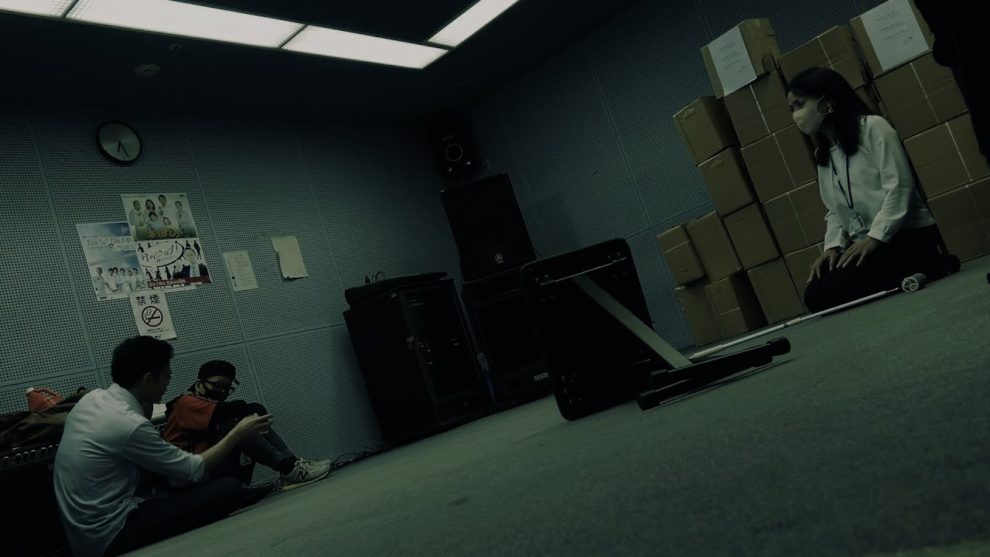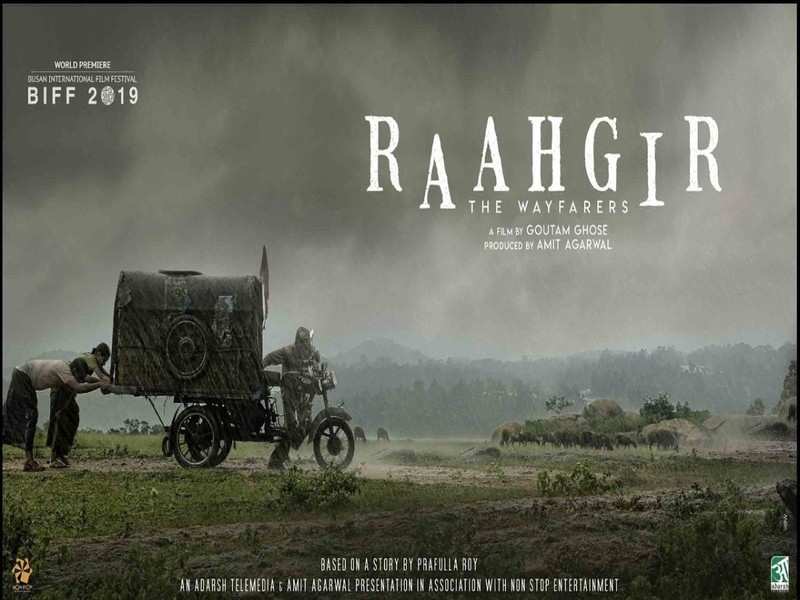After dealing with the entertainment industry in the harshest of ways in “Frantic”, Shugo Fujii decided to make his realistic but quite pointed remarks on the news industry this time, taking as his starting point the whole coverage of the Covid and particularly the vaccines.
Kingdom of the Apes is screening at Japan Filmfest Hamburg

After an intro inside a car that eventually shows that what we watch next is much more complicated actually, we are transferred to the building of a TV channel, where two rather intense “fights” are taking place, regarding a news special that is questioning the safety of a new vaccine. The producer of the program is being grinded to re-edit by a powerful news host, Satomi, along with a number of network executives, and the producer's superior, who, despite stating that he has got his back just a moment before, eventually also turns against him.
Meanwhile, another journalist, Aina, eventually finds herself in an editing room much lower in the building along with one of her colleagues, clashing against an editor who has gotten instructions to change the aforementioned special. Eventually, they found themselves locked in the cramped space. Lastly, a not so evident “game” is also commencing about who will get their hands on the usb stick that contains the original footage. As time passes, the tension increases.

Shugo Fujii directs a movie that begins as a drama, but through the rising tension and a permeating sense that something is wrong in both rooms, it soon becomes evident that this story will not end up in a calm fashion. Before that happens though, he manages to make a number of comments regarding how news broadcasting works, and essentially about the Japanese system as a whole. That the censorship is intense, and guided by the higher ups, occasionally even outside TV channels, is the comment that is first presented here. Even more surprisingly though, that many times no one knows who sends the orders about editing certain pieces, also comes to the fore, with Fujii suggesting that it might also involve a sense of duty by “lower' employees not to harm their higher ups and the channel, that leads to actions that are essentially unnecessary. Even more surprisingly, and in one of the most impactful scenes of the films, Satomi shows how networks perceive their viewers, in a remark that is quite pragmatic, but also difficult to hear when on the viewer's side.
Apart from the commentary, and since this is a Shugo Fujii movie, the action and the bloody violence that borders on exploitation is not missing from here too, with the film taking a direct turn towards the horror after a point, in a style that is quite entertaining.
Regarding the production values, his regular style with the intensely saturated colors is here once more, as the film borders on being black-and-white on occasion, while the editing implements a rather fast pace that gives a sense of movement to a movie that frequently acts as a stage play. Furthermore, the “trick” of cutting from a person who is talking to a different person to another location also works well here, adding both to the entertainment and the tension.
At the same time, though, and particularly for those who have seen “Frantic”, the overall “recipe” seems somewhat repetitive, both in terms of narrative and overall presentation. Moreover, the concept of the “real story” that benefitted that movie so intently, is painfully absent here, as the story goes a bit overboard after a point, particularly regarding the characters. On the other hand, the acting is on a very good level, with Takahiro Ochi as the young producer, Etsuko Tanemura as Satomi and Takako Sakai as Aina giving great performances, with their outbreaks being the apogee of their effort.
Despite the aforementioned, “Kingdom of the Apes” is a very entertaining satire/horror that definitely moves beyond the restrictions of its evident low budget, while at 75 minutes, it does not overextend its welcome in any way.















